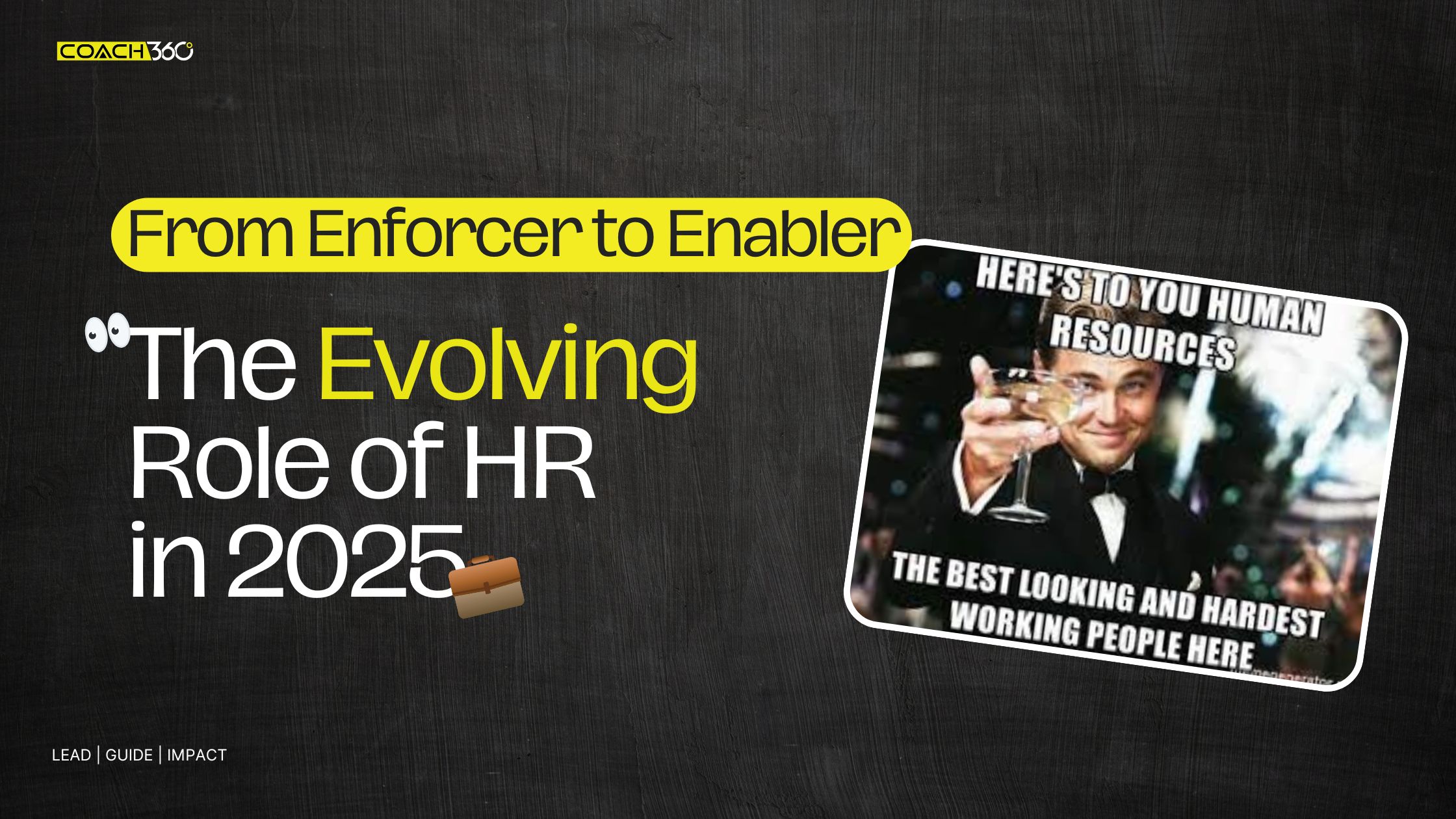
The traditional perspective on Human Resources -- a department focused on creating policies, checklists of compliance, and actions of discipline -- is quickly outdated. Moving into 2025, HR will not be an enforcer of rules, but an enablement of strategy by means of principles. This shift is more than a shift in external view; it's a shift in disposition.
As organisations adapt to tectonic structural shifts to ways in which we work, connect, and grow, HR becomes the architect of change. With support from platforms like The Coach360, HR leaders will be empowered to make people, not HR rules, the priority.
HR's role is distinct from being compliant with rules, to one that unleashes potential. The former rigidity with regard to the places we work has transitioned to be more fluid, responsive, and people-centric. Today's employees want purpose, flexibility, and growth.
It's HR's responsibility to ensure employees have access to those opportunities. That involves designing and managing cultures based on trust, fostering inclusion, and creating experiences which are based on engagement and emotional intelligence.
2025 is not just another year—it’s a critical juncture. Remote and hybrid work models are here to stay. AI, automation, and technology are transforming jobs faster than we can reshape roles. Generational changes are ushering in new expectations for the workplace, leading to greater transparency, empathy, and social awareness by businesses. The traditional role of the enforcer has become ineffective and outdated. HR leaders must be fluid, instinctual, and aligned to both business objectives and human needs.
Which is why The Coach360 is uniquely positioned to be a partner to HR professionals ready to move past the transactional partner, by providing executive coaching, team development mechanisms, and leadership alignment opportunity to activate the full value of your people strategy. As compliance manager, it was easy to know your role—now, you will be a coach, connector, and culture activator.
One of the most basic transformations in this transition is with how performance has been developed. Gone are the days for annual reviews and fixed KPI's. We are now seeing continuous feedback, developmental conversations and strengths-based coaching. HR is now facilitating real growth; measuring not just productivity but ultimately increasing productivity by empowering employees. Employees would like to know not only how they are performing, but why it is important. They want leaders who coach, not command. And they would ultimately like to be viewed as a whole individual, not just a job title.
This is where enabling versus enforcing becomes very powerful. It's not just relaxing standards; we are now starting to rethink how we cultivate excellence. Rather than telling employees what not to do, HR is now also showing them what they can do. That type of mindset creates accountability from alignment, not fear. It creates resilience, not inflexibility. And most importantly creates creativity, which is a vital component in a constantly changing world striving for innovation to remain relevant.
As the talent landscape continues to evolve, and expectations for employers shift and change, the employer-employee relationship is becoming increasingly more reciprocal. People no longer simply want to be hired. They want to be heard. They want mentorship, not micromanaging. They want organizations to lead with integrity in areas such as wellbeing, inclusion, and learning. The HR function once considered purely administrative, is now the main actor in the relationship-based economy. It is HR that designs the systems of trust and opportunity that can make a collection of people into a thriving, mission-oriented, engaged team.
Within this reality, the HR leader must be human and a strategic thinker without apology. The challenge here is to demonstrate empathy and compassion when at the same time trying to drive performance. There are innumerable tensions - risk vs. enabling new opportunities; risk vs. creativity; policy vs. relationships. The Coach360 knows this tension and gives HR professionals the skills to master it, by offering not only team-based leadership coaching around relational learning, but also support for building a culture that puts people first in business transformation.
There’s no question that the HR of today looks very different than it did just five years ago. But the evolution is far from over. In fact, it’s just beginning. As companies face new challenges—from AI integration to global workforce mobility to climate-conscious leadership—HR will continue to shape how businesses respond, adapt, and grow. It’s a role that demands courage, clarity, and a deep commitment to people.
HR is no longer the department that says "no." It’s the one asking, “What’s possible?” And with partners like The Coach360, it’s building the tools, mindsets, and cultures to turn that possibility into performance.